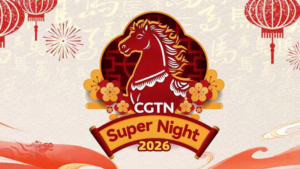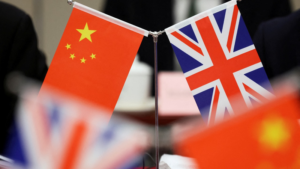
Nine Horses, One Legend: Artists Gallop into the Year of the Horse 2026
Nine artists blend traditional ink art with digital innovation to celebrate the 2026 Year of the Horse, creating a viral cross-cultural phenomenon.

Global Leaders Extend Year of the Horse Greetings to China
World leaders, including Putin and Lula, send Lunar New Year wishes to China, highlighting partnerships and cultural ties as the Year of the Horse begins.

2026 Spring Festival Gala Gallops Into Tech-Driven Future
The 2026 Spring Festival Gala combines cutting-edge technology with Year of the Horse symbolism, featuring AI-driven kinetic art and immersive digital environments.
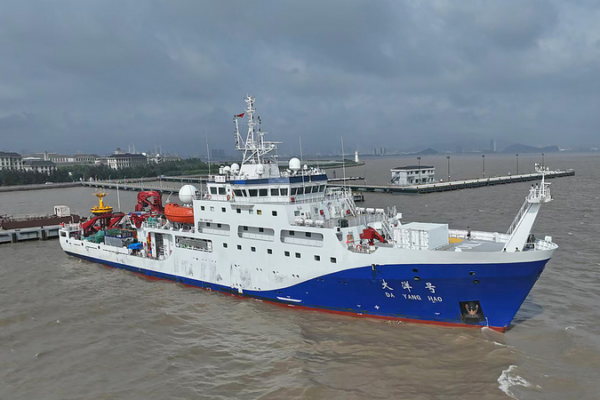
China Launches Deep-Sea Expedition to Indian Ocean for Mineral Exploration
China’s Dayang-95 expedition embarks on a scientific survey of Indian Ocean seafloor minerals, combining resource assessment with environmental monitoring using advanced deep-sea technology.

China-Made Winter Sports Gear Gains Global Traction Amid 2026 Olympics Boom
Chinese manufacturers ramp up production of winter sports gear as global demand surges ahead of the 2026 Milano Cortina Winter Olympics, capturing international markets with innovative designs and efficient supply chains.

Milano Cortina 2026: February 16’s Medal Events to Watch
Key medal events at Milano Cortina 2026 on February 16 feature speed skating, alpine skiing, freestyle skiing, and figure skating competitions with strong Asian participation.

Su Yiming Eyes Olympic Glory on 22nd Birthday at Milano Cortina
China’s Su Yiming advances to Winter Olympics slopestyle final, poised to compete for gold on his 22nd birthday amid dramatic weather challenges.

China Makes Historic Speed Skating Semifinals at 2026 Winter Olympics
China’s men’s speed skating team makes historic semifinal entry at 2026 Winter Olympics, defeating traditional powerhouses with record-breaking performance.

Bai Artisan Keeps Ancient Woodcut Tradition Alive for Year of the Horse
In Yunnan’s Dali City, a Bai artisan preserves ancient Jiama woodcut printing traditions for Lunar New Year blessings as the Year of Horse approaches.

OpenClaw Founder Joins OpenAI as Project Transitions to Open-Source Foundation
OpenClaw founder Peter Steinberger joins OpenAI while transitioning the project to an independent open-source foundation, signaling new AI collaboration opportunities.
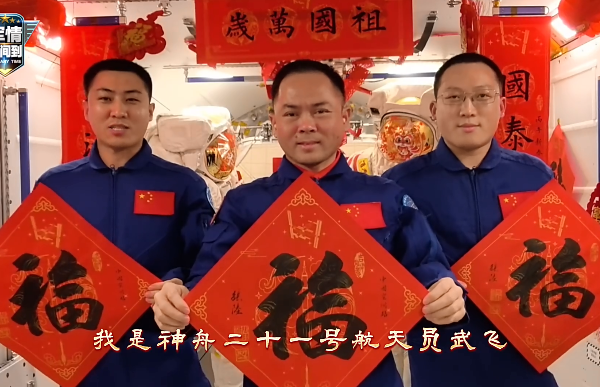
Shenzhou-21 Crew Celebrates Chinese New Year Aboard Space Station
Shenzhou-21 astronauts send festive greetings from China’s space station, marking the fourth Spring Festival celebrated in orbit with traditional decorations and messages of hope.

Olympic Legend Deng Yaping Inspires Winter Athletes Ahead of 2026 Season
Table tennis icon Deng Yaping rallies support for winter athletes as the 2026 competitive season gains momentum, emphasizing unity and perseverance across sports disciplines.
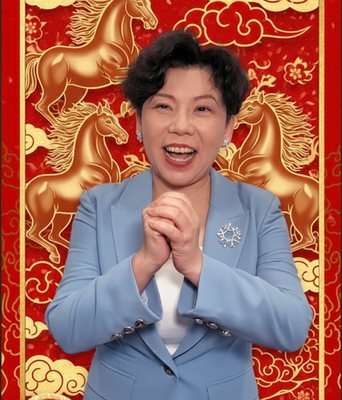
Olympic Legend Deng Yaping Shares Timeless Chinese New Year Traditions
Olympic icon Deng Yaping highlights family unity and the Spring Festival Gala as pillars of Chinese New Year celebrations, blending tradition with modern values in 2026.

Chengdu’s Sunny Start to Chinese New Year 2026: A Cultural Tradition
Discover how Chengdu residents prioritize sunny skies to kickstart their Chinese New Year celebrations, blending tradition with modern festivities in 2026.
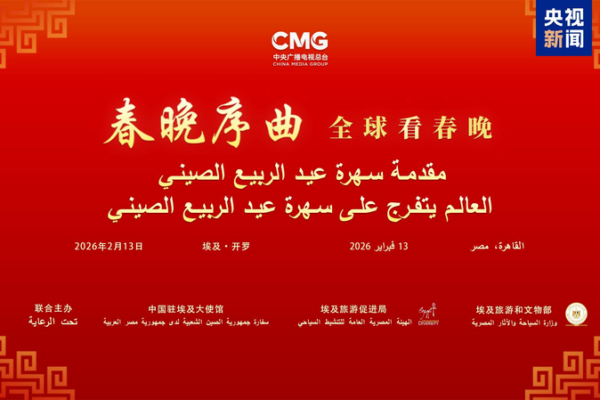
China-Egypt Cultural Ties Shine at CMG’s Spring Festival Prelude in Cairo
CMG’s Cairo event bridges Chinese and Egyptian cultures ahead of 2026 Spring Festival Gala, drawing 200+ cross-sector leaders to celebrate shared traditions.

Gen Z Embraces Chinese Wellness Trends in 2026
Global Gen Z adopts Chinese wellness practices through viral trends, reflecting China’s growing cultural influence in 2026.

China’s AI Giants Invest 4.5B Yuan in Spring Festival Red Packets: Beyond Tradition
Chinese tech giants spend 4.5B yuan on AI-integrated Spring Festival red packets, transforming tradition into digital strategy testing ground.

Southern China Celebrates Lunar New Year with Festive Outings
Families across southern China welcome the Year of the Horse with outdoor celebrations, blending tradition and springtime joy during the Lunar New Year holiday.

Morin Khuur: The Horse-Head Fiddle Bridging Mongolia’s Past and Present
Discover the morin khuur, Mongolia’s iconic horse-head fiddle, and its enduring role in nomadic culture as 2026’s Lunar New Year celebrations highlight its timeless resonance.

China’s Extended Spring Festival Holiday Fuels Record Consumption in 2026
China’s record 9-day Spring Festival holiday drives $8.5B in early 2026 sales, reshaping travel patterns and stimulating rural economies through targeted policy measures.









